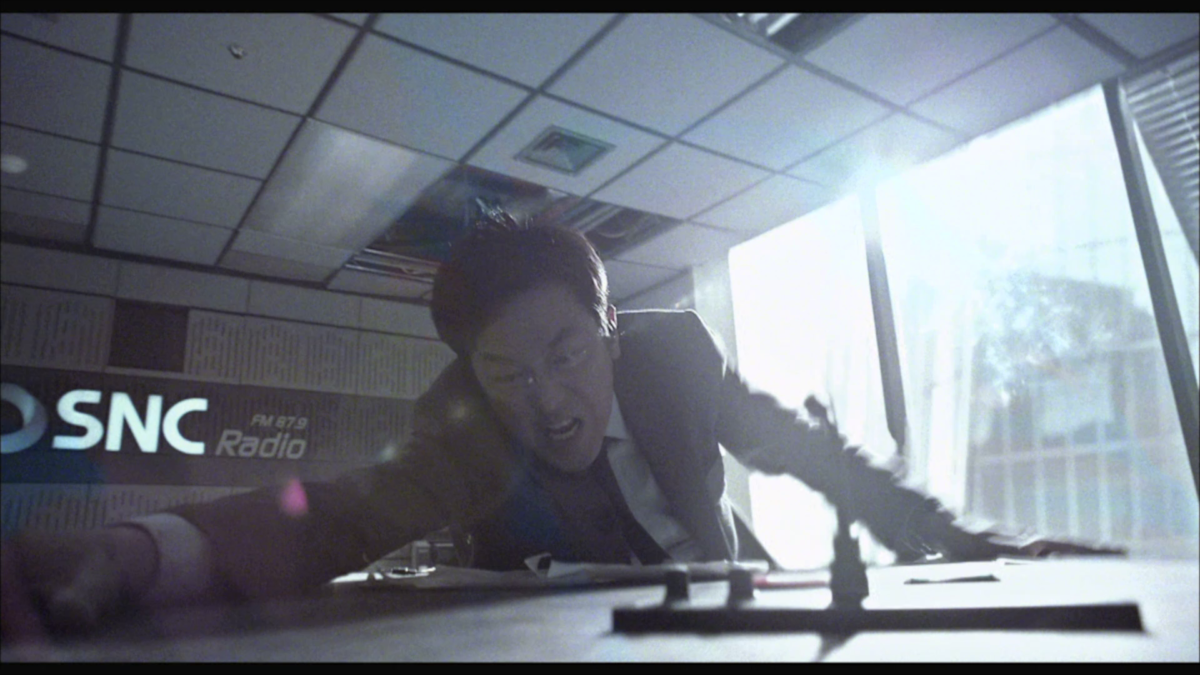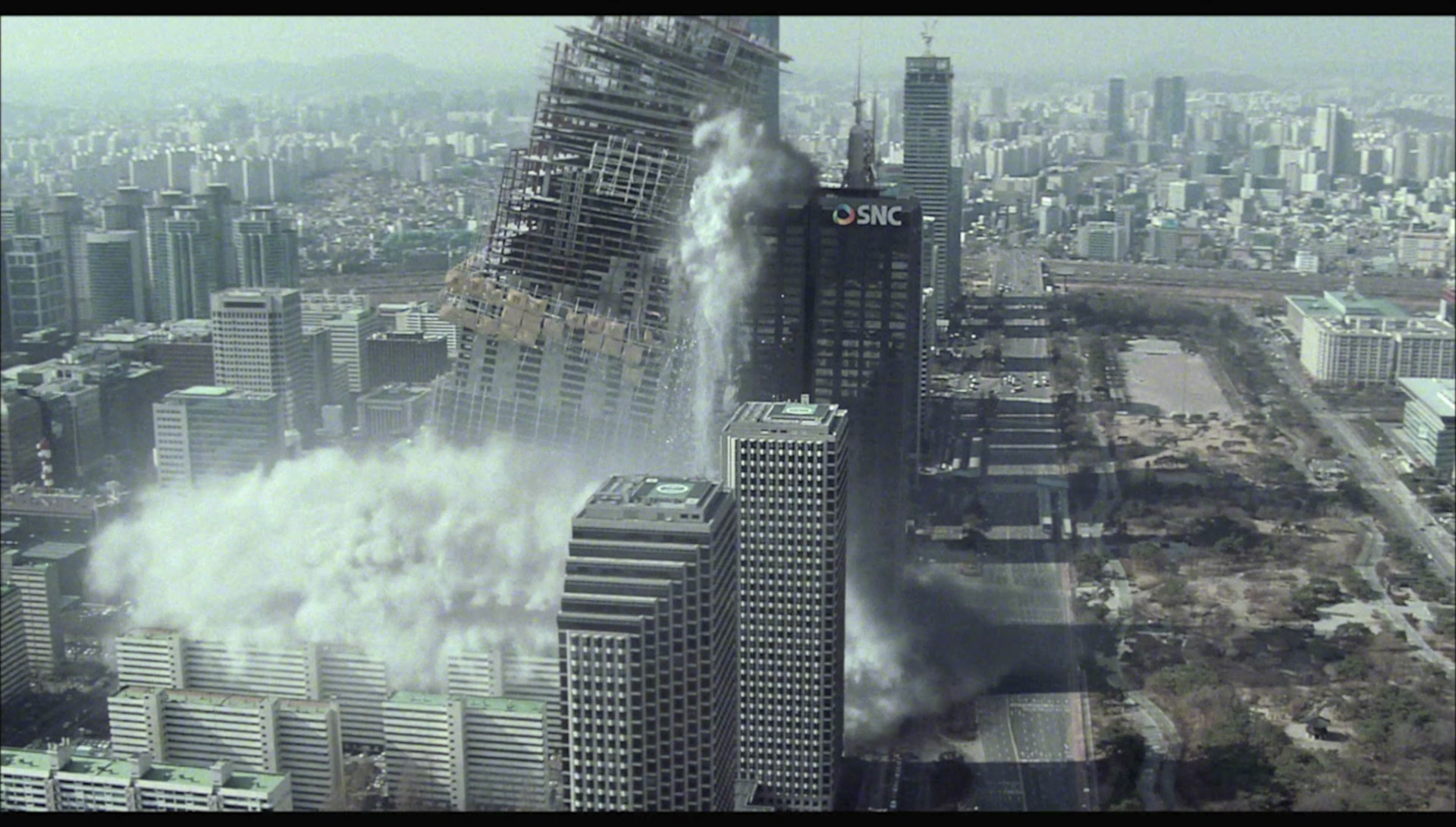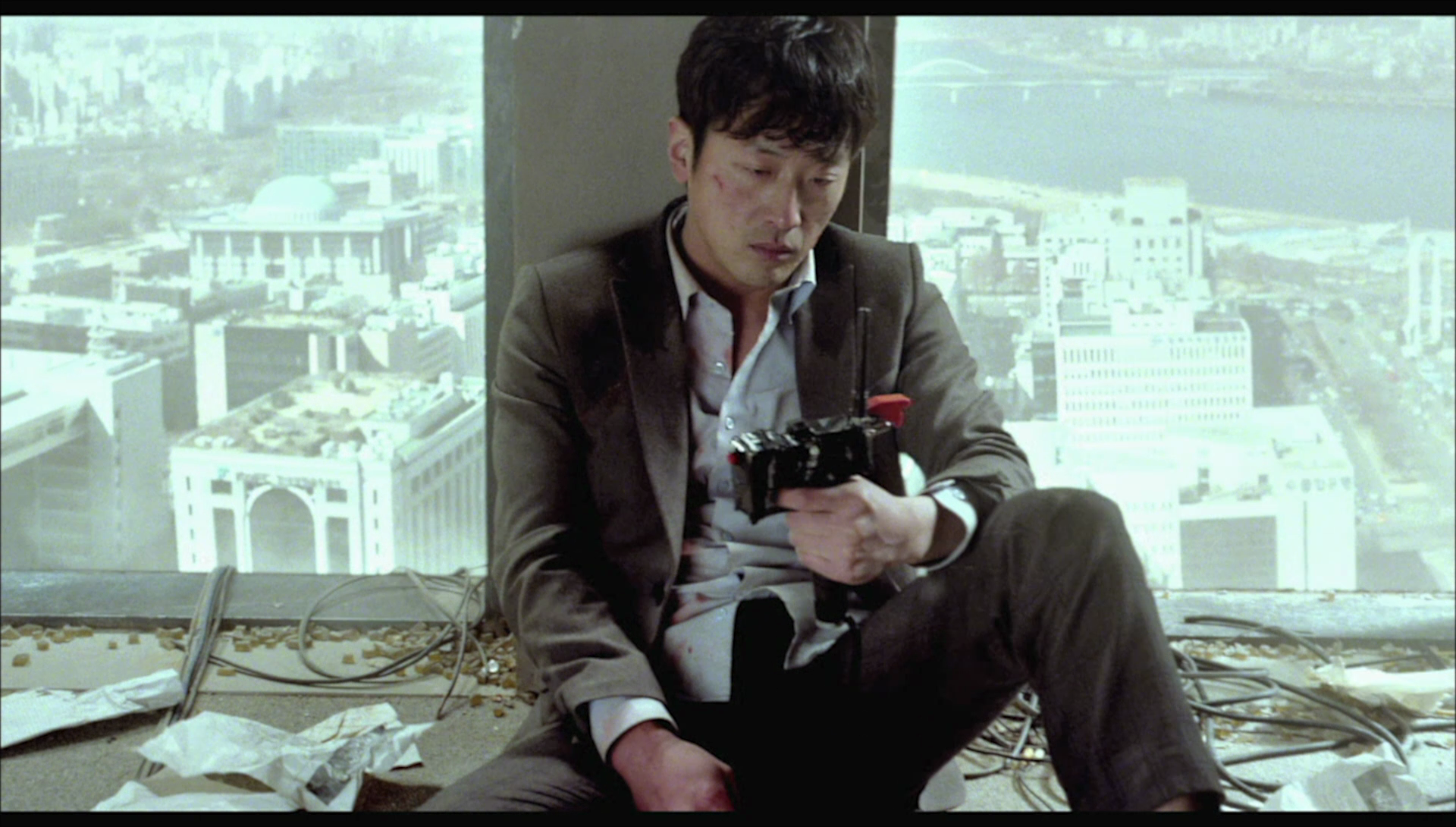Last Updated on October 6, 2020 by rob
After an anonymous caller to a radio phone in makes good on his threat to blow up a bridge he promises to explain why, but only live on air to DJ Yoon (Ha Jung-woo). For Yoon who has been stuck kicking his heels in morning radio shows this is the chance to get back in the big time. With the approval of his ratings obsessed producer Cha (Lee Geung-young) Yoon is soon back on the air in his small studio and drawing huge audiences for his live discussion with the bomber. But as Government officials arrive and start playing for time their delaying tactics enrage the bomber and events spin dangerously out of control.
A taut and engrossing battle of wills and wits in which there’s a lot more going on than first meets the eye (just why does the bomber refer to Yoon as a figure of trust?). Director Kim Byeong-woo generates edge of the seat tension through a succession of outrageously entertaining plot twists as arrogant officials attempt to bullshit and then threaten the bomber only to come a cropper when the assailant’s deathly touch proves able to reach into even Yoon’s tiny control room. Coursing through both this and a sub-plot about how Yoon’s wife (also a reporter) remains trapped on the unstable remnants of the bridge is a fiercely relevant theme about corrupt and selfish political elites who not only don’t give a damn about their citizens (as underlined by the fate of Yoon’s wife) but who behind-the-scenes are already lining him up as the fall guy should everything go pear-shaped.
Acting wise it’s essentially lead Ha Jung-woo’s show and he ably conveys the complex dramatic shadings of a character who starts off broadly sympathetic, becomes increasingly less so once revelations about his character trickle out but then regains our sympathy when the film unexpectedly brings his character onside with the bomber’s motives. This audacious move works because all the bomber seeks is a personal apology from the South Korean President. An apology for the deaths of three construction workers who died working under government orders on that same bridge three decades earlier. Unsurprisingly, those in power haven’t the slightest intention of apologising much less turning up for a personal meeting and their callousness so angers us that the film’s thematic point – if the elite of society are so uncaring they can’t even bring themselves to apologise for something they caused then what’s left except to revolt and blow them all up – proves very persuasive indeed. It works too for Yoon’s character. Although he’s hungry for fame and regards his subject as nothing more than a ratings grabber to put him back on top the bomber’s persistent faith in Yoon is a reminder to him of what he used to stand for.
The Terror Live’s slick production values really help to sock over the impact of big setpieces like the one where the detonation of an office tower block causes it to topple over on top of Yoon’s building. In this respect the film’s blunt 9/11 style imagery has a courage to it that would seem inconceivable in a Hollywood picture. David Fincher tried something similar with Fight Club but that was a largely adolescent enterprise whose climactic blowing up of buildings played like a laddish lark. The Terror Live, on the other hand, isn’t blowing buildings up for laughs and has the courage of its convictions, not least in its bracing fuck-’em-all-to-hell ending. If I was mildly exasperated by Byeong-woo’s directorial choices – he favours the twitchy handheld camera style with lots of cutting, an affectation the film really doesn’t need given the inherent strength of the material – The Terror Live nontheless completely grips throughout. It works as chamber piece, as a beat-the-clock thriller, as media satire and as a truly savage skewering of those running the country. The moment when Yoon and the bomber come face to face and the figure we’ve been told is a monster turns out to be… well, I thought that was an unforgettable moment.



